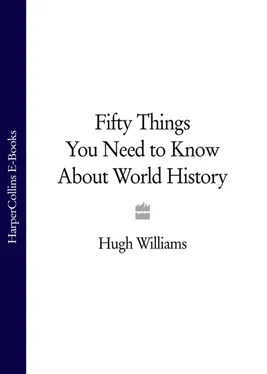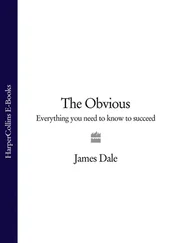The names of Rockefeller and Carnegie live on through the philanthropic trusts their money endowed, permanent reminders of the wealth generated by oil and steel. In Azerbaijan, where the oilfields once competed with and might have overtaken their American counterparts, they remember another philanthropist. Zeynalabdin Taghiyev, the son of a shoemaker, went drilling for oil on rented land near Baku. In a repetition of what happened in other parts of the world, his partners gave up and sold him their shares. In 1873 he struck oil and became one of the richest men in Imperial Russia. He could neither read nor write, but used his money to build schools and theatres and to help pay for the pipeline that still brings water to the city of Baku from the Caucasus Mountains a hundred miles away. When the Red Army reached the city in 1920, Taghiyev’s house was seized. He was allowed to live the last four years of his life in his summer cottage not far away, but his second wife was not so fortunate. She died in poverty on the streets of Baku in 1938. The Bolsheviks turned his splendid residence into the Azerbaijan National History Museum, which is what it still is today. The fortunes of the world’s first oil tycoons were very different. In capitalist America their wealth was their greatest protector: in Bolshevik Russia it destroyed them.
CHAPTER 8
The Treaty of Versailles 1919
The Treaty of Versailles formally brought the First World War of 1914–18 to an end. Its terms had the effect of making a defeated Germany feel impoverished and resentful. In trying to build a world of peace it laid down foundations that would lead to another war.
In 1918, on the eleventh hour of the eleventh day of the eleventh month, an armistice was signed that ended the fighting of the First World War. Barely a month later, on 10th December, 75,000 soldiers of the German army marched back into Berlin. They were greeted at the Brandenburg Gate by Friedrich Ebert, a socialist politician who was the new Chancellor of the nation. ‘Welcome to the German Republic,’ he shouted. ‘Welcome home. You should march home with your heads held high. Never have men achieved greater things.’ Warming to his theme, he continued: ‘Your sacrifices have been unparalleled. No enemy has conquered you.’ With those words the mood of the new Germany was born. It was an undefeated country that had either been sold out by conspirators in its own ranks or was suffering from difficulties imposed by the punitive terms of an unfair treaty. The Kaiser’s Fatherland was not just a memory. It still existed. It could rise again.
The Kaiser’s Fatherland still existed … it could rise again.
Ebert was facing a situation that was in danger of running out of control. He and the other moderate socialists that he led, had supported the war as a necessary patriotic measure. He had not wanted to see the end of the monarchy and felt that the proclamation of Germany as a republic following the Kaiser’s abdication had been premature and needed to be ratified by a nationally elected assembly. But he was overtaken by events. By the time he addressed the first meeting of Germany’s new national assembly the following year, 1919, the German Republic was a fact and the country’s mood of resentment more entrenched. To maintain power he needed to respond to it. Germany’s enemies, he told the assembly in his opening speech, were seeking ‘to indemnify themselves at the cost of the German people … These plans of revenge and oppression call for the sharpest protest. The German people cannot be made the wage slaves of other nations for twenty, forty or sixty years.’ His remarks were met with loud applause. Ebert wanted above all to create a true democracy in his defeated homeland – but the task he faced proved hopeless. In the end the German people looked to the right-wing parties to redress their sense of grievance. Within fifteen years, the Nazis had assumed power, democracy died and Europe was on the road to war once more.
The victorious Allies who met in Paris at the end of the First World War wanted above all else to destroy German militarism. They also wanted to establish world peace, rearranging the fragments of disintegrated empires in a way that would ensure the future happiness and prosperity of their subjects. The task they faced was immense and probably impossible. The Habsburg Empire of Austria-Hungary had arisen out of the old Holy Roman Empire established by Charlemagne in 800 AD, and, in various forms, governed the whole of central and Eastern Europe for centuries. The Hohenzollern Empire of the German Kaiser, the Allies’ main enemy, had used its Prussian base to unite the German states during the second half of the nineteenth century, creating a formidable military machine intent on expansion and conquest. These two great engines of state had collapsed and the people they had once governed were looking for new, democratic freedoms. The Allies recognised these ambitions, but they also wanted to punish the aggressor. Graciousness in victory is the greatest of all political virtues but it requires a degree of altruism unusual in human beings. At Versailles the Allies’ understandable desire for punishment outweighed their careful consideration of the future and undermined the hopes of those who thought they had been liberated from imperial control.
Bismarck and the Creation of the German Empire
On 18th January 1871, German princes gathered in the Hall of Mirrors in the Palace of Versailles. They had come to witness the crowning of the Prussian King, Wilhelm I, as Emperor of a newly-formed nation – Germany. Before 1871, Germany was a patchwork of independent states over which Austria exerted the predominant influence. But German nationalism was growing. In 1848 revolutionaries demanded unification, offering the Prussian King the imperial throne. He refused, worried that it would lead to military intervention from Austria. But as Prussia’s military, diplomatic and economic power grew, the whole idea of unifying Germany without Austria started to become a real possibility.
The principal architect of this extraordinary achievement was a skilful and loyal diplomat called Otto von Bismarck (1815–98). During the 1850s he became convinced that unification could be achieved in Prussia’s interests. When in 1862 he was appointed Prime Minister and Foreign Minister of Prussia he began to employ astute diplomacy blended with timely military intervention to secure his ends. With the assistance of two Prussian soldiers, Albrecht von Roon and Helmuth von Moltke, the army was reorganised into an impressive fighting force. In 1866 it defeated the Austrian army at Königgrätz, east of Prague. This enabled Bismarck to annex the north German states including Hanover, Frankfurt and Saxony. France, frightened of being encircled by the growing power of Prussia, declared war in 1870. Prussia pounced. Having defeated France in the Franco-Prussian War, Bismarck wasted no time in negotiating with the leaders of the southern German states to complete unification.
Bismarck’s political system ensured strong monarchical authority. As Imperial Chancellor, he pursued a policy of pragmatic, peace-oriented diplomacy that made the new German Empire a powerful country. But his approach met with criticism, not least from Wilhelm II, who became German Emperor in 1888. Wilhelm’s politics were more expansionist and militarist than his Chancellor’s and he forced Bismarck to resign in 1890. The man who more than any other built the modern German state lived in restless retirement until his death in 1898.
‘It was,’ said Troeltsch, ‘reminiscent of the way Rome treated Carthage.’
The terms of the Treaty of Versailles were imposed upon Germany. The Germans took no part in any of the discussions prior to their being told what the Allies had agreed. Apart from being forced to reduce their army to 100,000 volunteers and to severely restrict their manufacture of weapons, the Treaty demanded that Germany accept sole responsibility for starting the war. It also insisted on severe economic penalties, forcing the country to make reparations – in the first instance settled at about $31.5 billion – stripped it of all its overseas colonies and reassigned a large part of its European territory to France, Belgium, Denmark, Czechoslovakia and Poland. France was also given all rights for fifteen years over the German coalfields in the Saar on the eastern border between the two countries. Some of these conditions were to be expected: Germany was bound, for instance, to have to hand back Alsace to France and to restore the land it had taken from Belgium. But the economic demands, combined with the requirement to accept all the guilt for causing the war in the first place, aroused the anger of the defeated nation. ‘It was,’ said the German writer, Ernst Troeltsch, ‘reminiscent of the way Rome treated Carthage.’ He was not the only person to feel that the Treaty was unfair. In Britain the economist John Maynard Keynes urged re-negotiation of the terms. In his book, The Economic Consequences of the Peace, published in 1919, he said that: ‘Great privation and great risks to society have become unavoidable.’ A new approach was needed to ‘promote the re-establishment of prosperity and order, instead of leading us deeper into misfortune.’ And he quoted the writer Thomas Hardy, whose long verse-drama, The Dynasts, is set in the Napoleonic war that had engulfed Europe a hundred years previously:
Читать дальше












